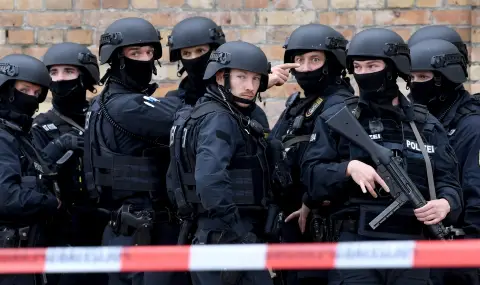"From an international perspective, Germany is doing relatively well in preventing and overcoming radical Islam", says a study that investigated the phenomenon of radical Islamism in Germany.
Germany as an example
As the head of the study, Julian Junk from the Leibniz Institute, told ARD, good work has been done in the last ten years, structures have been created, processes have been professionalized, and reliable connections have been established. But there are still a number of unknowns. And there is also the concern that the budget for research, prevention and programs could be cut.
Meanwhile, there is no dispute about who is most susceptible to radical Islam - an extremist ideology that also condones the use of violence. It is almost always young people who are affected - in most cases from immigrant families with a Muslim background. The exceptions only confirm the rule.
Of the 5.5 million people of Muslim faith in Germany, however, only a few share radical and extremist attitudes or are prone to violence. Islamist tendencies find fertile ground among those who have serious problems.
Social and personal reasons
On the one hand, the reasons are of a social nature. Anyone who feels discriminated against, isolated or a second-class citizen because of their origin or has been the victim of xenophobic violence seeks recognition and community among those they believe respect and value them. With Salafists, jihadists, the so-called “Islamic State“ or other radical Islamist groups, those affected find themselves part of a community that not only accepts them, but also says: “You are better people than the infidels“.
Added to this are the individual prerequisites that push young people into the hands of religious fanatics. Many have serious mental problems, others are unstable, lonely and disappointed. They are happy to believe what the propaganda of radical Islamist groups promises them. They hope to give meaning to their lives. Extremism researcher Junk, quoted by ARD, sums things up as follows: “Islamism gives support to broken souls“.
In addition, the Internet makes things much easier for hunters of “broken souls“ – That's where most of the contact goes. It's cheap and effective, since most young people spend most of their time in the digital space anyway. It's full of countless videos that inform and encourage, and Islamist influencers provide religious or social arguments.
Short, categorical videos, no nuances
Researchers on integration and migration from Humboldt University in Berlin have analyzed a huge amount of video material and have found that short videos are particularly successful. They are looking for clear messages and the shortest possible answers to all sorts of problems. They are most effective among young people who have no prior religious knowledge, who are looking for orientation and their path in life. And who do not have much trust in politics and civil society in Germany. However, such videos have almost no effect on Muslims who have a strong religious faith and are self-aware, explains ARD.
But what do you do when young people become radicalized? The violence prevention network in Germany has been providing assistance to those in need for many years. However, few come alone - the consultants rely mainly on signals from their environment. "The environment is crucial," Thomas Mücke, who has extensive experience in both Islamism and right-wing radicalism, told ARD. Radicalization usually takes place over a long period of time and there are signals for this. "A lone wolf who becomes radicalized without anyone knowing about it is a very rare phenomenon," he says.
Tested strategies
Parents, teachers, friends, neighbors - anyone who has the impression that a young person is changing in a radical direction - can contact the violence prevention network. The young people affected are then taken on by specialists.
As Thomas Mücke explains to ARD, there are now tested strategies that can be used. Help is also provided to people who want to leave Islamist groups, as well as to former sympathizers of the "Islamic State" who have been in Syria and elsewhere. There is, of course, no 100% certainty that terrorist attacks can be prevented, but cooperation with security services in Germany is good, the researchers and authors of the study note.
The success of prevention could be improved if the exchange between research and practical work were to become even more intensive. Both sides would benefit from this: practitioners have access to young people at risk, know their situation and their motives. Researchers can point out the dangerous life patterns they have discovered on the basis of observed cases, and make recommendations for action.
The solutions are not easy
Recommendations for action are also important for politicians, because Islamism does not only pose a threat of terrorist attacks. It can threaten the stability of society as a whole. If, for example, all Muslims are suspected of being extremists, as right-wing populist circles are promoting, this leads to greater isolation and xenophobia. And this in turn creates fertile ground for even more radicalization.
Prevention through integration and democratic education produces the best results. Educational measures, increased political and public awareness, closer cooperation between the state and civil society, and active participation of Muslim communities are needed. Successful policies against radical Islamism are multi-layered, the researchers told ARD. Simple solutions like "deport them all" are useless.
Author: Anke Haan
